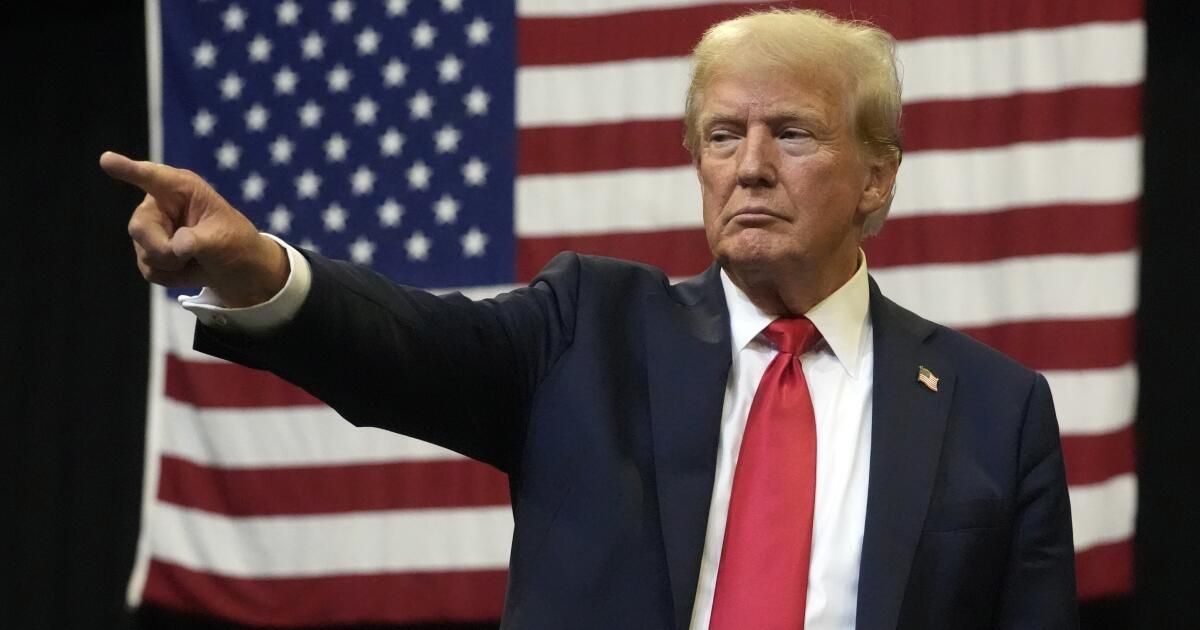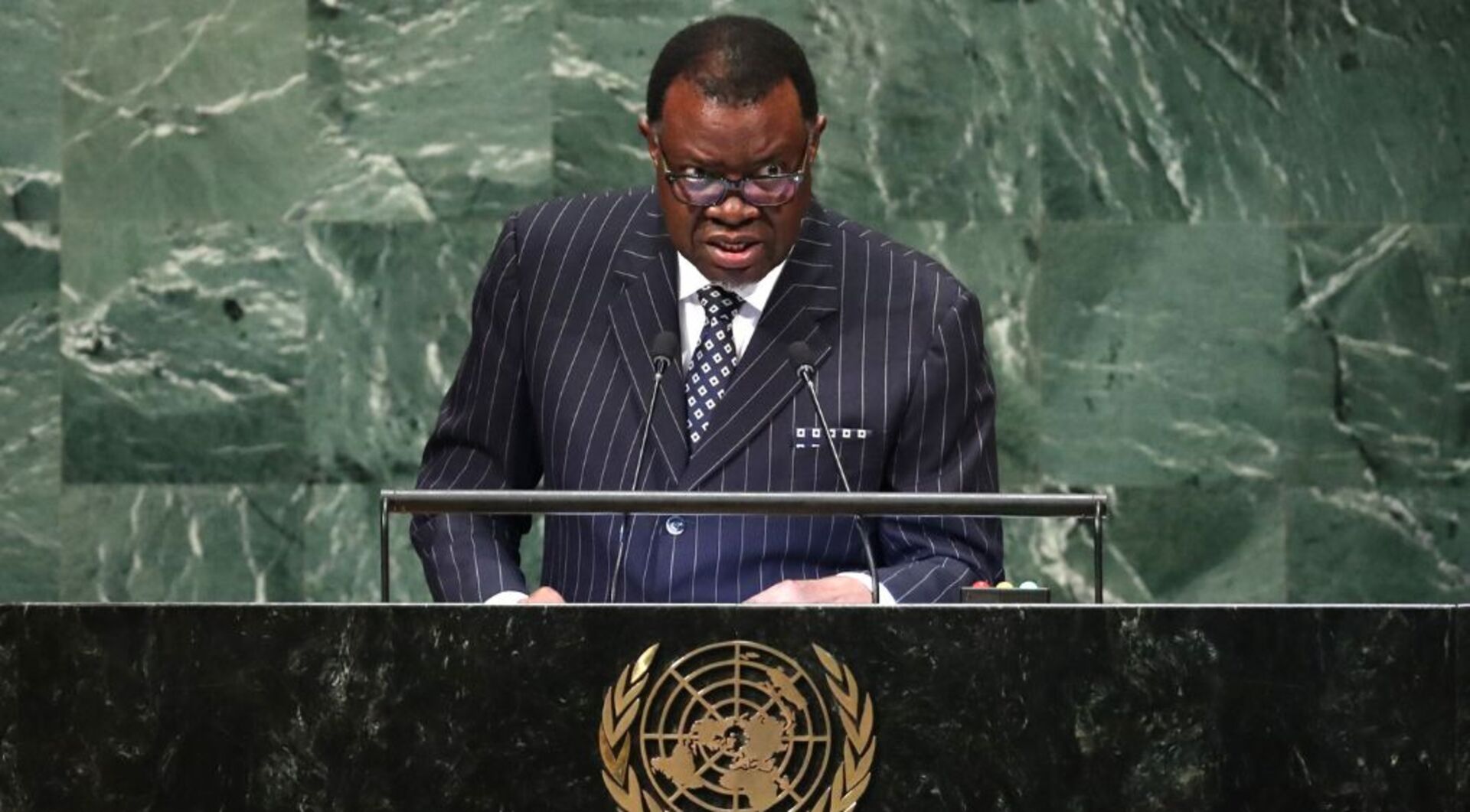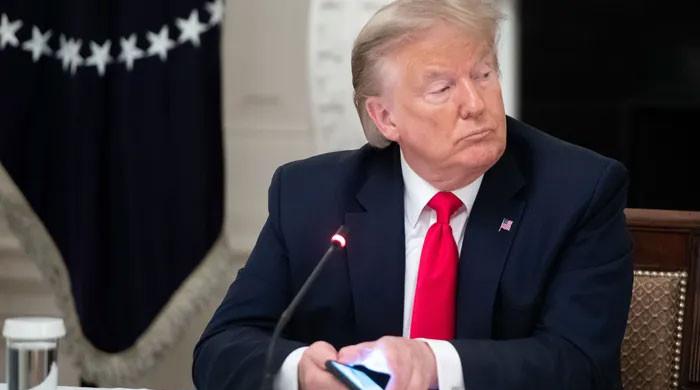As former President Trump puts it, the United States is a “crime-ridden mess” with “the worst border in the history of the world” and is simultaneously headed toward the next Great Depression and World War III.
According to Trump, his reelection will change all of this almost immediately. Foreign wars will abruptly end, and millions of undocumented immigrants will be deported. The United States will “DRILL, DRILL, DRILL!” and the associated revenues will “rapidly” transform a weak American economy into one in which “incomes will soar, inflation will completely disappear, jobs will come roaring back, and the middle class will thrive like never before.”
Trump's critics say all this is just bluster. They say he is a showman who speaks with lofty, populist rhetoric but whose policies portend the opposite of his promises. Instead of being America's savior, they say, he would be its destroyer.
They note that Trump has admitted he would act like a “dictator” from “day one,” and warn that multiple conservative strategies for his next term — including Project 2025 but also Trump’s own Agenda 47 — suggest a full-scale embrace of authoritarianism.
They believe Trump would dismantle social safety nets for the poor and middle class, illegally discriminate against vulnerable groups like LGBTQ+ people and roll back women’s rights, including the right to reproductive health care. Bolstered by a recent Supreme Court ruling granting presidents broad immunity, they fear the twice-impeached and criminally convicted former president — who helped incite an insurrection the last time he lost an election — will go on a rampage if he wins.
The one thing Trump supporters and critics agree on is that the candidate has said a lot about what he plans to do. What they think of him often depends on what they think of those promises — many of them lofty, vague or legally dubious — and whether they take him at his word or think he’s lying.
On immigration
Trump has focused heavily on immigration, claiming there is an “invasion” of murderers, terrorists, “insane asylum” patients and gang members smuggling fentanyl along the Mexican border.
Trump has said he will “seal the border” with a physical wall, completing a task he prioritized during his first term, and “carry out the largest deportation operation in American history.” He has vowed to punish sanctuary cities that fail to coordinate with federal immigration authorities and deport migrants without considering asylum claims.
Trump has said he will order his military to attack foreign drug cartels and call for the death penalty for “drug dealers, kingpins and human traffickers.” He has also said that on his first day in office he will issue an executive order eliminating birthright citizenship, contradicting long-established constitutional precedent by simply declaring that the “correct interpretation” of the law is that U.S. citizenship is not granted to all those born on U.S. soil.
Chris Zepeda-Millán, associate professor of public policy, Chicano studies, and political science at UCLA, is co-author of “Walls, Cages, and Family Separation: Race and Immigration Policy in the Trump Era.”
Her research has found that a majority of Americans did not support Trump’s immigration policies during his first term, especially those that separated children from their families, and do not believe a border wall would be effective. Zepeda-Millán said those who supported Trump’s policies, sometimes despite believing they were ineffective, also held the “most racist views,” including general unease with the growing Latino population.
Trump’s hyperactive focus on immigrants is a “symbolic anti-Latino action” aimed at those same people, Zepeda-Millán said, his way of “doubling down on efforts to get the most racist white Americans out to vote.” Trump leads Vice President Kamala Harris in recent polls on who would better handle immigration, including 51% to 46% in a New York Times/Sienna College poll in key states.
Zepeda-Millán said Trump can be counted on to continue using racism to score political points, but he doubts Trump will actually try to deport millions of people, many of whom would be farmworkers. “Everyone knows, including Trump, that significant parts of our economy are completely dependent not only on immigrants, but on undocumented immigrants,” he said.
On abortion
When Trump ran for president in 2016, he campaigned on repealing the federal right to abortion under Roe v. Wade. As president, Trump appointed three of the six conservative Supreme Court justices who would overturn Roe in 2022, ushering in a wave of state abortion restrictions and bans.
Reproductive health advocates have blamed Trump for decimating those rights, which most Americans support, and Harris has campaigned to restore them.
In response, Trump has sought to maintain a highly delicate stance on the issue, in part by dodging questions or answering them vaguely. He has taken credit for dismantling Roe and returning the power to restrict abortion to individual states, but he has resisted calls to ban it nationwide. He has said he personally supports exceptions for abortion in cases of rape and incest and when a woman’s life is in danger, but he has also left the door open to further restrictions on commonly used abortion pills.
Arneta Rogers, executive director of the Center for Reproductive Rights and Justice at Berkeley Law School, said Trump paved the way for extreme anti-abortion laws that disproportionately harm people living “on the margins,” including people of color and young people, the poor and gay people, and he should address that legacy, because “the stakes couldn’t be higher.”
“When people show you who they are, you have to believe them,” Rogers said.
On the economy
Trump has promised to stop taxing seniors’ Social Security income and tips earned by service workers. Both promises would cost the government billions, though the exact cost can’t be known without more details. Harris has also promised to work to end the federal tax on tips.
Trump has said he would fund his agenda by increasing domestic energy production through drilling and lowering fuel costs, striking better trade deals with foreign countries and imposing tariffs on those that don't comply, and eliminating waste in the federal bureaucracy.
Trump, who partly blames the inflation on President Biden’s “wasteful spending,” has said he will use special “impoundment” authority (which presidents do not legally have) to withhold “large portions” of every federal agency’s budget, regardless of how Congress allocates the funds. He has vowed to eliminate the U.S. Department of Education altogether.
Susan Minato, co-president of Unite Here Local 11, a union representing service workers in Southern California and Arizona, called Trump's promise to end tip taxes a “red herring” that workers acknowledge as a distraction from his long record of attacks on unions and the Affordable Care Act, which provides vital health care to many wage earners.
“Our members see that clearly,” she said, and they are reaching out across Arizona, a key swing state, to knock on doors and talk to working-class voters about how Harris is a better choice for the working class.
About the weather
Trump has promised to dismantle environmental programs and increase oil and gas drilling.
Trump has ridiculed wind power as “weak” and electric vehicles as too expensive, and has suggested that a return to fossil fuels will quickly reduce energy costs. He has promised to defund clean energy initiatives under the so-called Green New Deal, deriding it as the “Green New Hoax.”
Project 2025 has flatly rejected the threat of global warming and called for the National Oceanic and Atmospheric Administration, which includes the National Weather Service, to be dismantled as “a major driver of the climate change alarm industry.”
On Ukraine and Gaza
During his speech at the Republican convention last month, Trump said, “I have no wars,” that he “could stop wars with just a phone call,” and that the wars in Ukraine and Gaza would never have started if he were president.
The United States was at war in Afghanistan when Trump was president.
After a call with Ukrainian President Volodymyr Zelensky last month, Trump said he would end the war in Ukraine by convincing Zelensky and Russian President Vladimir Putin, who ordered the invasion of Ukraine in 2022, to “negotiate a deal.”
Trump has repeatedly voiced support for Israel’s war in Gaza, which has devastated civilian populations, and has said that any Jewish person considering voting for Harris “should have their head examined.” Agenda 47 says Trump will “deport pro-Hamas radicals” from the United States and make college campuses, where many pro-Palestinian demonstrations have taken place, “safe and patriotic” again.
Trump has also said he would build an “Iron Dome” over the entire United States, a reference to Israel’s short-range missile defense system. Experts have said building such a system in the United States would be pointless given the country’s size, geographic position and existing defense capabilities, but they admitted Trump could be using the familiar name of Israel’s system as a “metaphor” for a more complex missile defense system in the United States.
The United States is threatened by unmanned aerial systems, cruise missiles and other weapons systems, said Tom Karako, a missile defense analyst at the Center for Strategic and International Studies, and is already in the process of building up its defenses.
The Trump campaign did not respond to The Times' questions about the policy areas mentioned.












